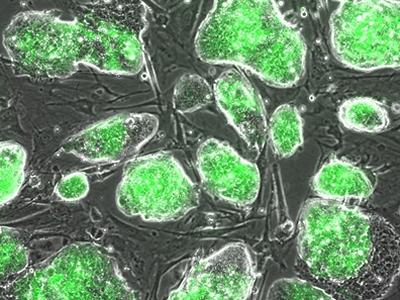Meeting the challenges of stem cell research

A team of mathematicians and stem cell biologists from the University of Southampton is part of an international group whose research work will feature in the latest issue of the prestigious Nature Cell Biology.
Dr Ben MacArthur and his team have been working with colleagues at the Mount Sinai School of Medicine, in New York; the Aachen Institute for Advanced Study in Computational Engineering Science and the Zentrum furIntegrative Psychiatrie, in Kiel, Germany; to address the challenges raised by vital research into stem cell biology.
Stem cells are the body's master cells and have the amazing ability to renew themselves and generate tissue following disease or injury. This means stem cells have the potential to repair or replace damaged tissues and organs, offering new hope of treatments and cures for many common diseases including diabetes, heart disease, Alzheimer's and Parkinson's disease.
The multi-disciplinary team’s latest research aims to better understand the behaviour of individual mouse embryonic stem cells.
"Stem cells can exhibit considerable cell-cell variation that can profoundly affect the long-term regenerative potential of the stem cell population. So before new regenerative medicine strategies can be safely used in the clinic it is therefore necessary to fully understand cell-cell variability in stem cell populations," said Ben.
"We used an integrated approach, combining single cell experimentations with mathematical modelling, to show that cell-cell variability is regulated by feedback loops in the cells molecular regulatory circuitry. We hope that by understanding the biology of these mouse stem cells we will ultimately be able to better understand human stem cell biology," he added.
The paper Nanog dependent feedback loops regulate murine embryonic stem cell heterogeneity is published in November’s edition of Nature Cell Biology. To read the full paper go to Nature website.